Is skipping college worth it?
It’s a question everyone should ask themselves but few actually do.
Instead, they get caught up in the “everybody goes to college, it’s just what you do” mindset that’s resulted in the cost of a four-year education rising faster than wages.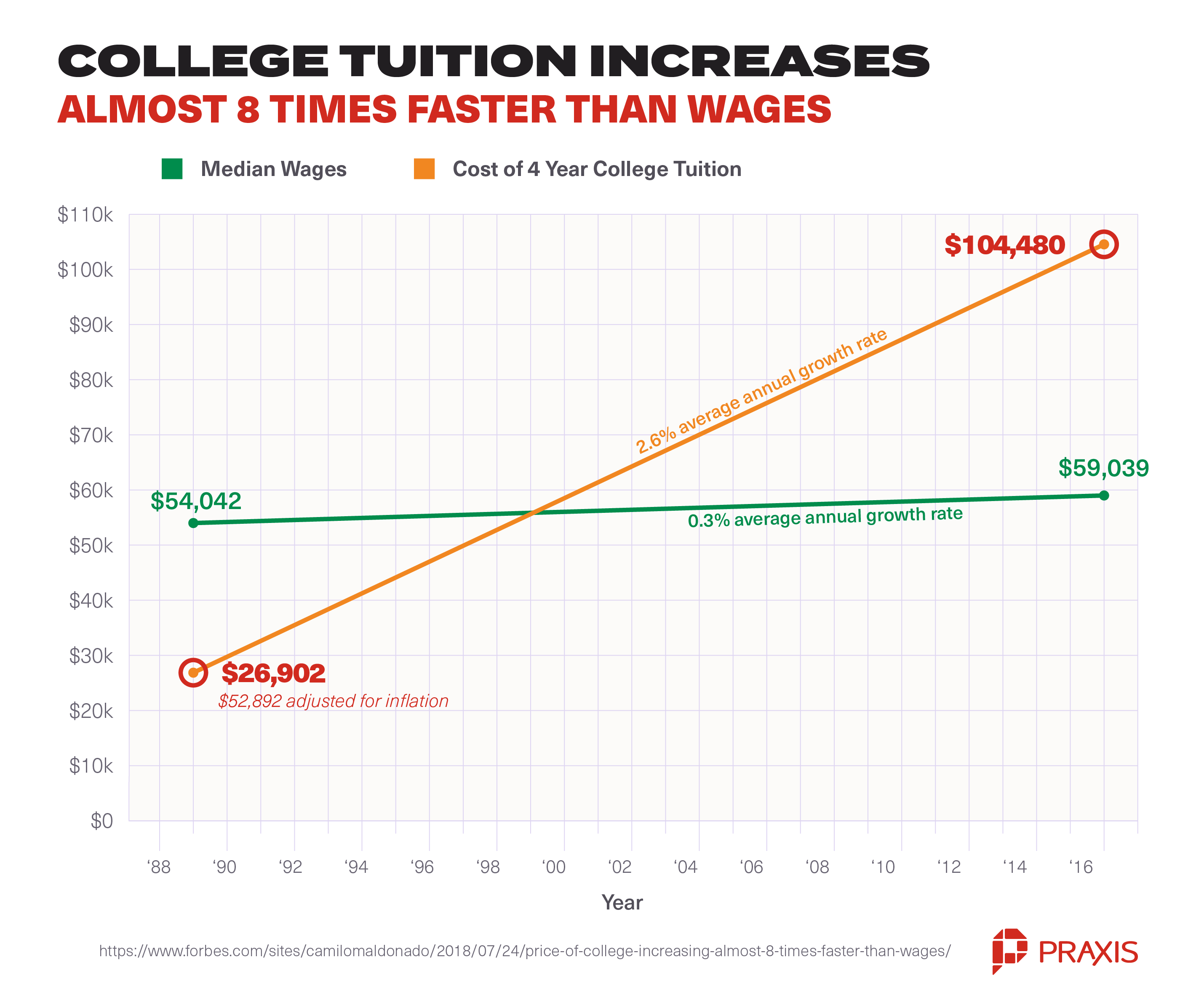
The average Class of 2019 graduate left college with $28,950 in student loan debt, and that just includes students who finished their academic program with a degree to show for it.
What about the two million students who drop out of college every year? Many are saddled with student loan debts of their own—dropping out wasn’t the plan when they initially enrolled—with little to show for their time and money.
The truth is that the return on investment of a college education isn’t what it used to be. A 2019 survey by Cengage found that 34% of employers think college hasn’t prepared students for jobs, and the most in-demand skills are things anyone can learn with or without a degree.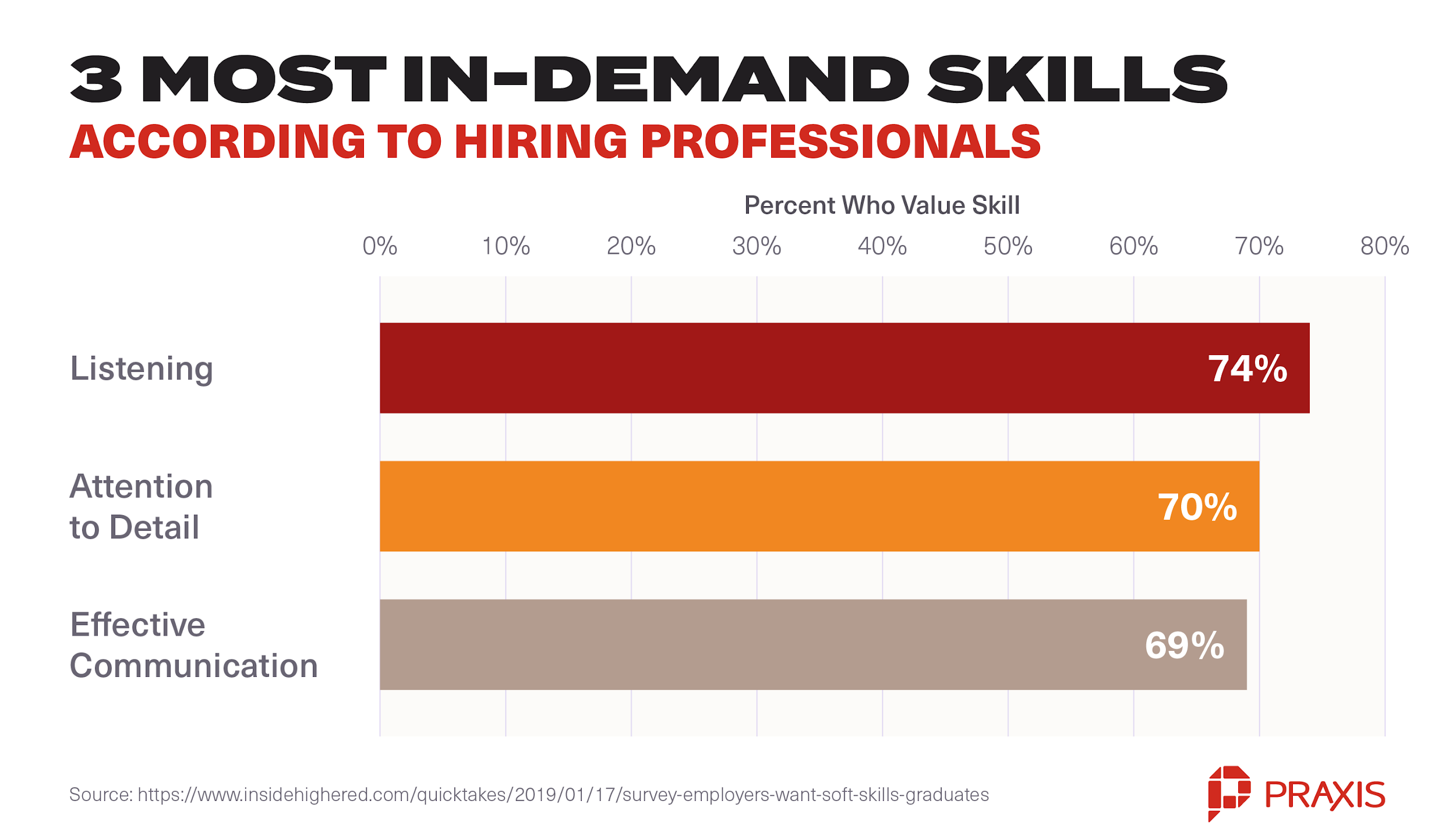
Even more incredible, a 2018 survey by Lending House found that 90% of employers are open to hiring someone without a traditional four-year college degree.
With all of that context, let’s ask (and answer) the big question: Is skipping college worth it?
For some people, yes—skipping college is a good idea.
Who Should Skip College?
College isn’t some scam that’s universally bad for everyone. Even as the expected value of a college education continues to drop, there are still people who pursue a traditional college education, earn their degree, and enjoy successful careers doing exactly what they always envisioned. In short, they get a positive return on their investment.
On the flip side, there are tons of people who enjoy career success without a college degree. We profiled 125 Successful People Who Didn’t Graduate College from all sorts of industries like real estate, journalism, marketing, and more.
If going to college is the right choice for some and skipping college is the right choice for others, how do you know which is right for you? Deciding whether to skip college is a personal choice that’s unique for everyone, but there are several situations where skipping college often is the right choice.
1. You’re unsure which career path to follow
A 2017 survey conducted by Strada and Gallup found that an alarming number of college graduates have regrets about the major life decisions they made when enrolling:
- 36% wish they’d chosen a different major
- 28% wish they’d attended a different school altogether
Indecision is normal, and it might even be beneficial. The Institute for the Future asked 20 tech, business, and academic experts to imagine the future job market. The panel predicted that by 2030, a shocking 85% of the jobs that today’s learners will be doing haven’t even been invented yet.
How are you supposed to prepare for a career that doesn’t even exist?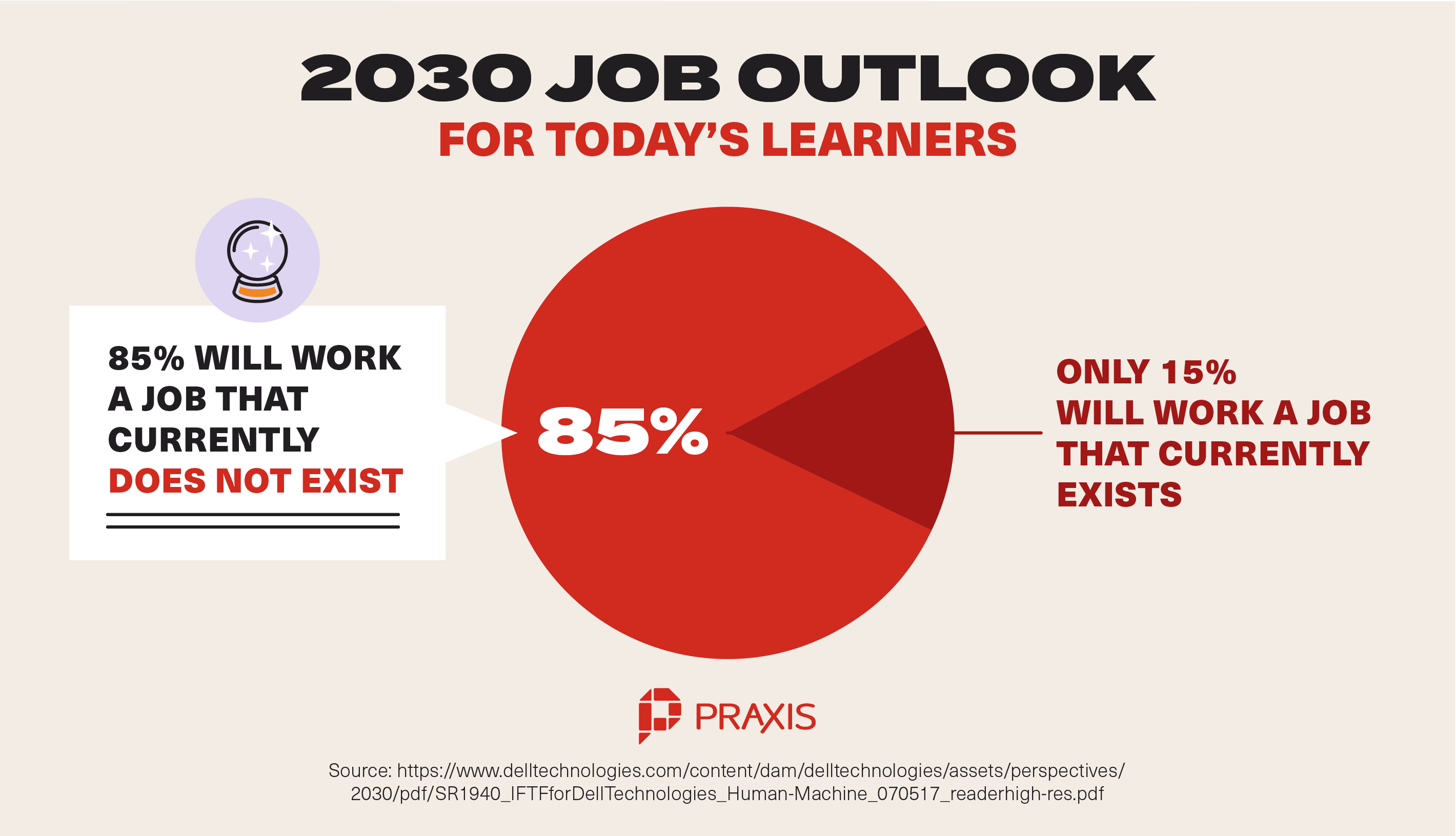
College is a big investment in terms of both money and time. Going to college just for the sake of going to college puts that investment at risk. If you’re unsure of which career path to follow, skipping college may be the right decision.
2. You know your career path and it doesn’t require a degree
Not every career path requires a college degree—just look at those 125 people who found career success without graduating college. Sure, some are tech geniuses who changed the world with their revolutionary ideas, but “Founder of a Silicon Valley Tech Startup” isn’t the only career on that list.
The Internet has made knowledge more accessible than ever, allowing anyone to learn rare and in-demand skills outside of the traditional college experience. It’s also created ways for you to develop a portfolio showcasing your talents and broadcast that portfolio for employers to find.
Today’s hiring managers increasingly are open to hiring candidates without a four-year college degree, and, once you’re in the door, 54% of employers are willing to provide additional training to develop your talent.
3. You’re uneasy about the typical student loan burden
Signing up for nearly $30,000 in loans can be a stressful proposition, regardless of whether you are confident on which career path to follow. And not everyone deals with that stress the same way.
Researchers at Staffordshire University in London found there are two common responses people have to stressful situations, such as completing four years of rigorous coursework with a pile of loan debt waiting on the other side:
- Some view it as a challenge.
- Others view it as a threat.
Those two groups have entirely different bodily responses that affect how they perform.
The challenge group produces more adrenaline, which is the fight-or-flight hormone that supplies your body with more oxygen, heightens awareness, and increases performance.
The threat group produces more cortisol, which is the stress hormone that’s believed to be linked to anxiety and depression when cortisol levels consistently rise too high. Anxiety and depression are thought to change your brain’s physical structure, leading to memory problems, difficulty thinking clearly, and decreased motivation.
If you think you’re in the threat group, don’t worry—there’s nothing wrong with you. Your body just processes stress differently. Listen to your body and put yourself in situations where you’re more likely to succeed. For some, that may mean skipping college.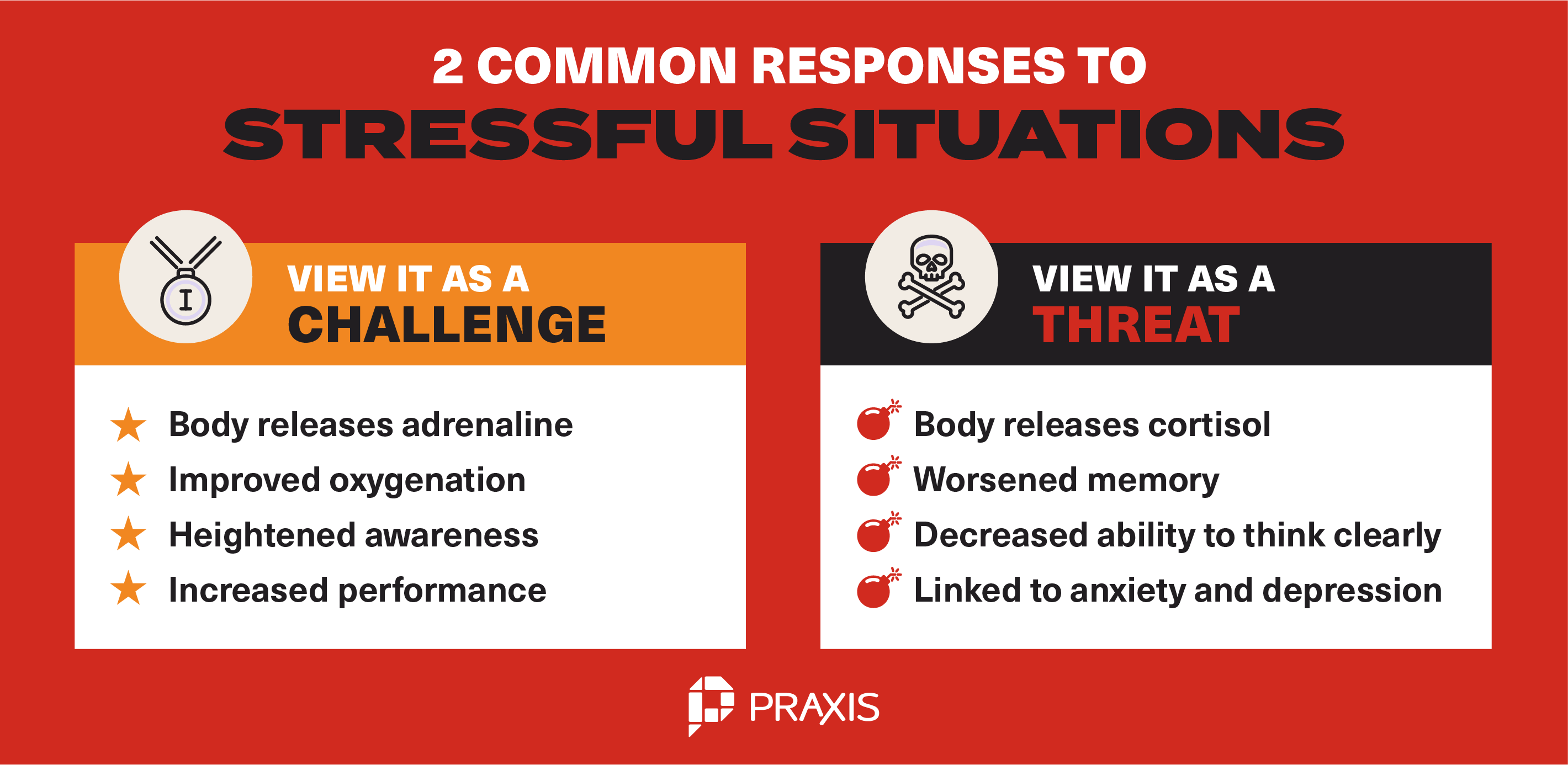
4. You don’t do well in traditional academic settings
Lofty student loan burdens aren’t the only source of stress. Many students struggle with the traditional academic setting.
- Mind-numbing classes in stuffy, over-crowded lecture halls
- Midterm and final exams that count for huge portions of your grade
- Endless essays and research papers
Once again, if you’re the type of person who views those as anxiety-inducing threats instead of exciting challenges to overcome, then opting out of the traditional academic setting may be right for you.
5. You’d rather invest in career capital
“Career capital are the skills you have that are both rare and valuable and that can be used as leverage in defining your career.”
That quote by Cal Newport, an assistant professor at Georgetown, perfectly explains how everyone should approach their education, either in college or through other means of self-directed learning. Your goal should be to acquire skills that have value and then use those skills to become an in-demand job applicant who employers need to hire.
Career capital can be anything:
- Graphic design
- Public speaking
- Computer programming
- Car repair
- Writing
The list goes on.
Think of each skill as if it were a physical item you’d buy at a store or a collectible in a hobby shop. Its value is tied to supply and demand.
- Supply: How many people possess this skill? Typically, skills that are harder to learn are in lower supply among job applicants.
- Demand: How many employers are looking for this skill? Typically, skills that everyone needs (like car repair and electrical work) or skills that help businesses grow (like marketing and writing) are in high demand.
Skills that are lower in supply but higher in demand have more value. It’s basic economic theory.
Think of the traditional college education as an investment and ask yourself the following questions:
- How much time and money does it cost to complete a college degree program?
- What career capital (skills) will you earn by investing that time and money?
- What college alternatives can you pursue instead with that same time and money?
- What career capital (skills) will you earn by investing in those alternatives?
When you think of college as a way to trade your time and money for career capital, you realize it isn’t the only option. And when you realize college isn’t the only option, you may realize it isn’t even the best option.
How to Skip College & Build Your Career
Before you tell your parents you aren’t going to college, you need a plan for what you’ll do instead. While that may sound overwhelming, it doesn’t have to be. Just follow these five steps:
- Decide what’s meaningful to you
- Build career capital through self-directed learning
- Set SMART goals
- Keep experimenting
- Think ahead (but not too far)
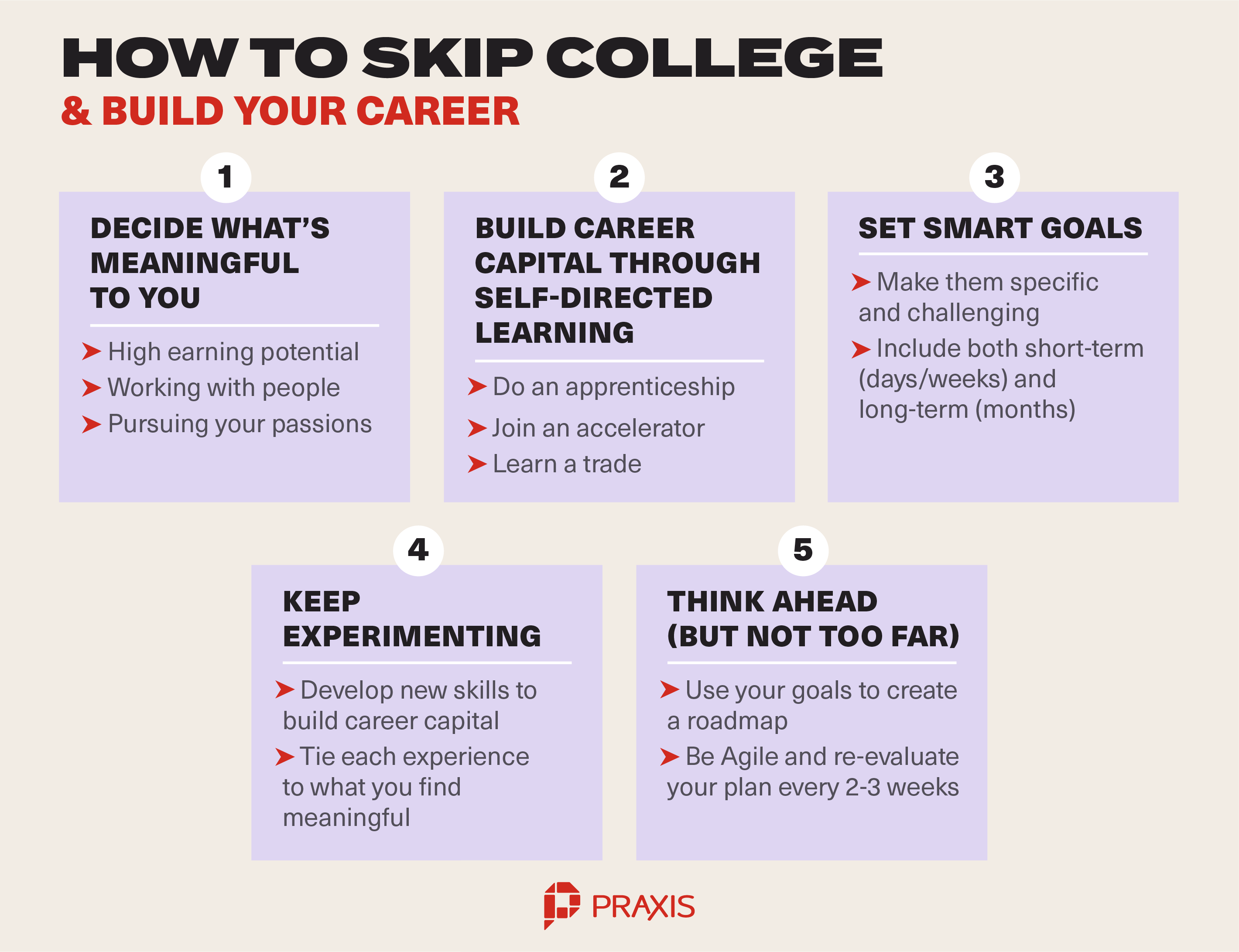
1. Decide what’s meaningful to you
Do you know what you want to do with your life?
- If so, great. You’ve already completed step one.
- If not, that’s great too, because you can choose to do absolutely anything.
But for many, the idea of picking one thing out of the entire world of everything seems daunting.
How are you supposed to know which career path to choose?
Begin by looking inward and ask yourself this question: What’s meaningful to you?
- Do you want a career where you can make a ton of money?
- Do you want a career where you can help other people?
- Do you want a career where you can enjoy freedom?
- Do you want a career where you’re constantly challenged?
- Do you want a career where you gain fame or notoriety?
This exercise is about narrowing the entire world of everything to create a shortlist of some things where you can be both successful and happy.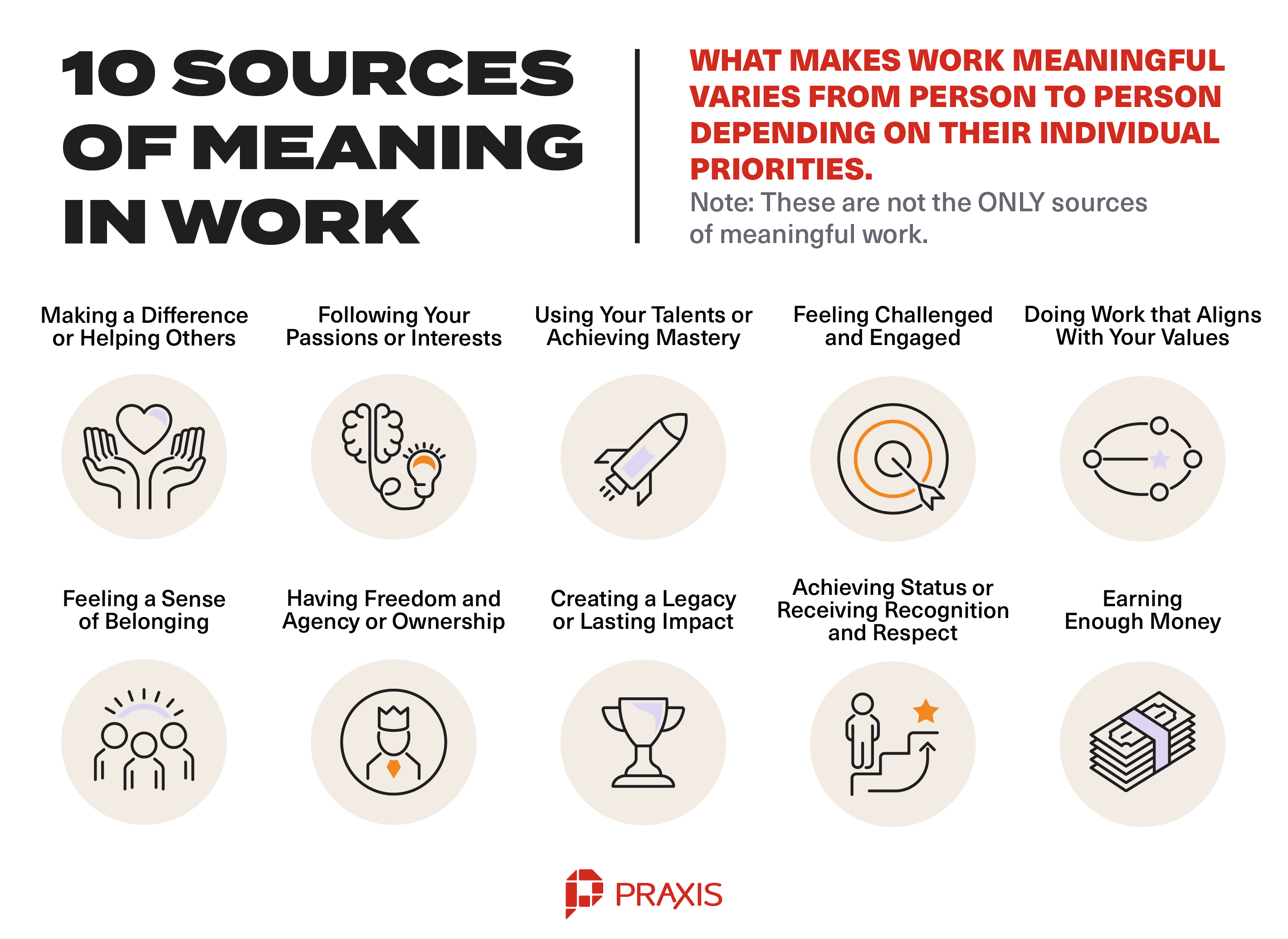
2. Build career capital through self-directed learning
Traditionally, we’re taught that college leads to better jobs, higher salaries, and more personal satisfaction. Put another way, college is the best way to build career capital—the in-demand skills employers are willing to pay for.
While college can be a good way to build career capital, it isn’t the only way. There are all sorts of college alternatives you can use to develop the valuable, in-demand skills needed to find meaningful work—whatever that means to you.
Praxis is one of the best ways to build career capital because you’ll learn by doing in an intensive, 12-month program. (And is there a better way to develop skills than by practicing them early and often?) Praxis specializes in non-technical business roles like sales, marketing, customer service, and operations, and you’re guaranteed to find a full-time job within six months of graduating or your entire bootcamp experience is free.
You can also defer payment until after you land your job and expect to earn more than the cost of tuition within the first six months.
Praxis has helped launch over 350 careers with 93% of graduates receiving full-time offers with an average starting salary of $50,000. That’s the same starting salary as the average college graduate, and Praxis grads begin their careers three years earlier. Not only does that mean three extra years of earned income ($150,000 total over those three years), but it also means three years of pay raises and promotions.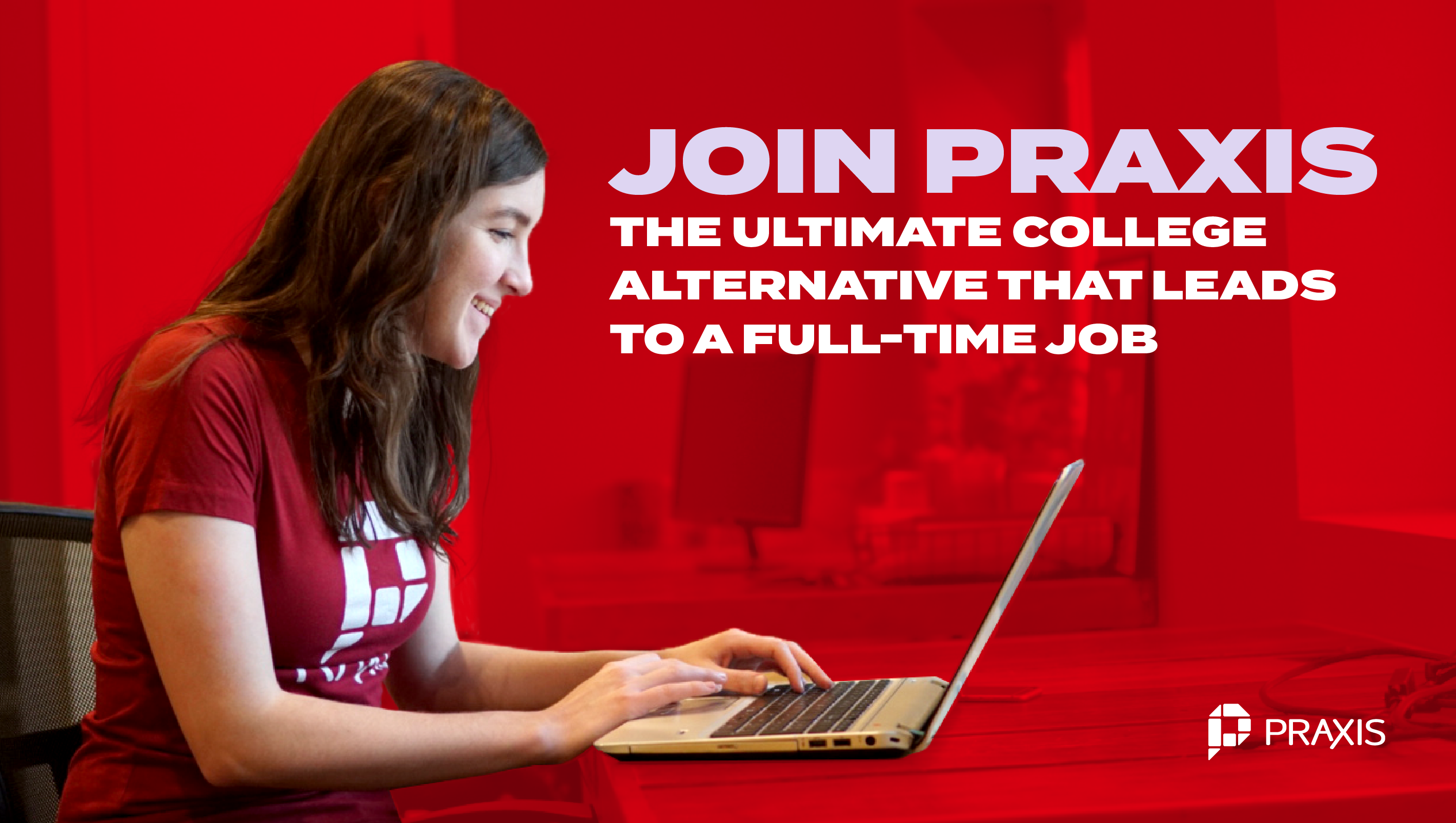
Of course, Praxis isn’t the only college alternative (although we think it’s the best). Depending on the career you’re interested in pursuing, you may also find success with other forms of self-directed learning, such as apprenticeships, coding bootcamps, finding freelance work, learning trades, or taking online courses.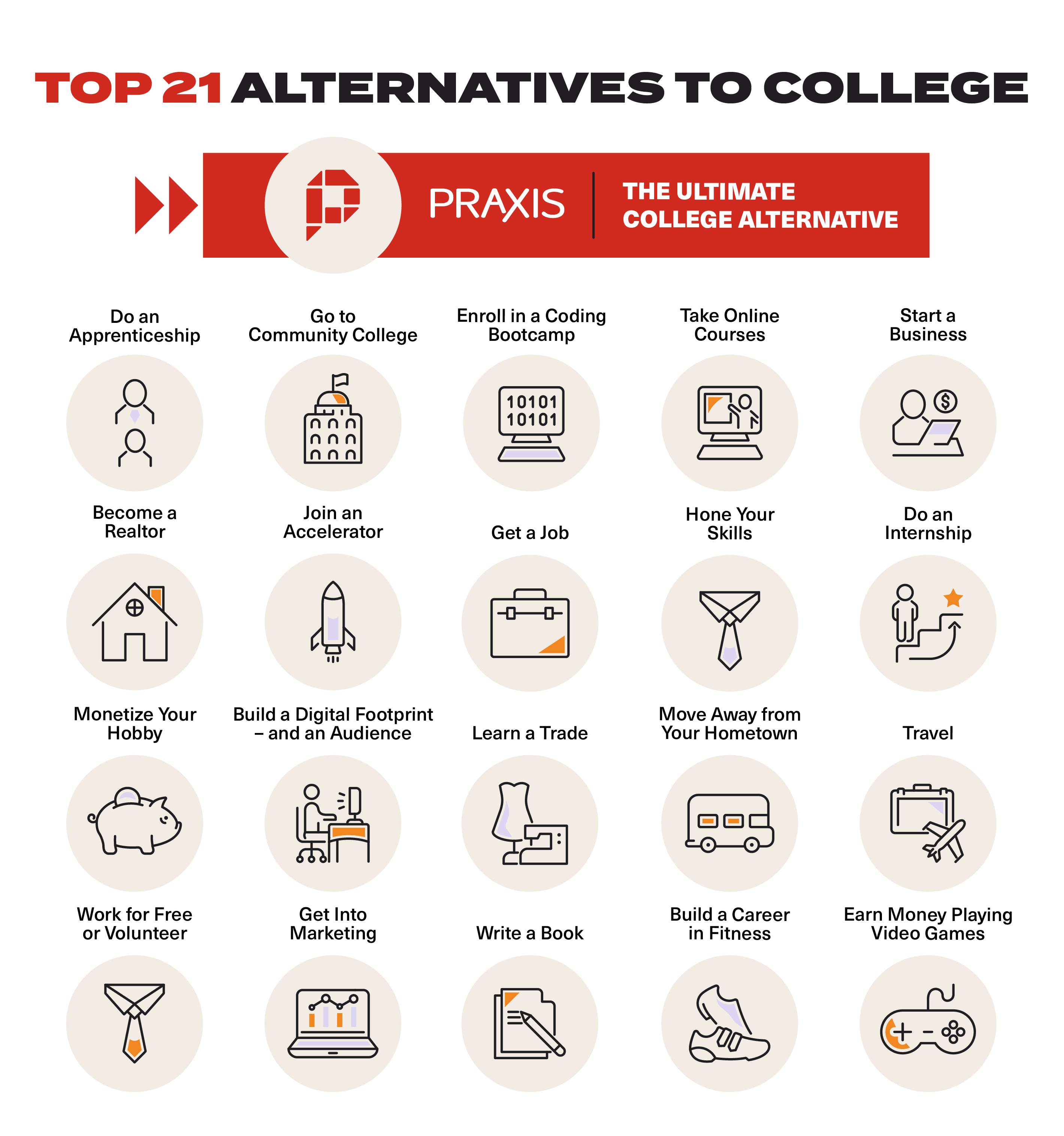
3. Set SMART goals
People who set “specific and challenging” goals enjoy better performance 90% of the time and people who physically write their goals down are 33% more likely to achieve them.
The “specific and challenging” part means the goals we’re talking about aren’t vague like “I’ll try really hard at work.” Instead, your goals should be SMART:
- Specific: Be precise about what you hope to gain.
- Measurable: Decide how you will track your progress.
- Attainable: Challenge yourself but make sure your goals are realistic and achievable.
- Relevant: Ensure that your goals make sense given your circumstances and what you hope to achieve.
- Time-Bound: Create milestones and deadlines to keep you focused and motivated.
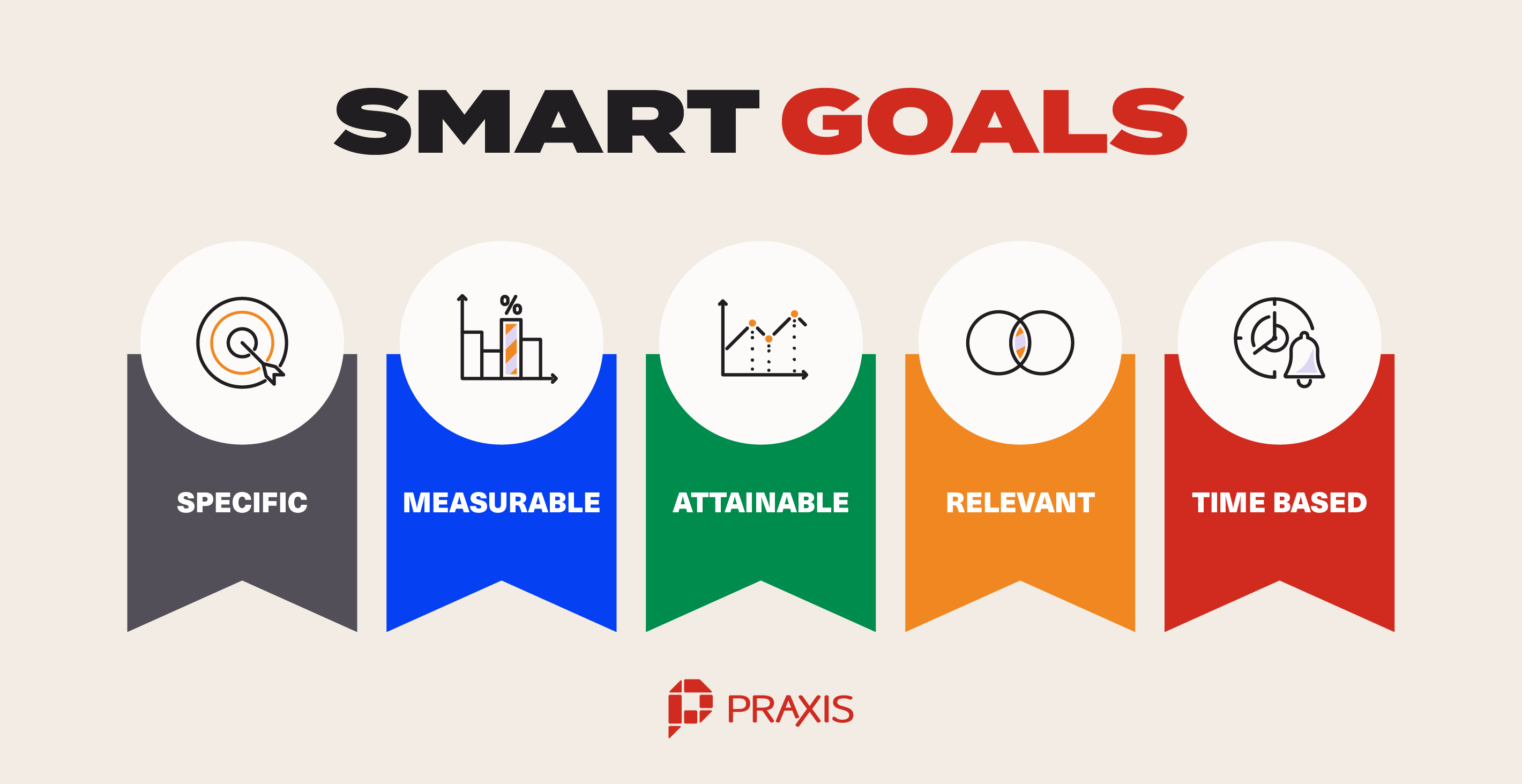
Here’s an example of a SMART goal: “I’ll learn to grow and manage a Facebook page by publishing a new post every day, and I’ll learn about creating viral posts by reading Made to Stick for at least 30 minutes each night.”
It helps to keep your goals small and think daily or weekly. When your goal is too far in the future, it’s easy to procrastinate and say, “I’ll just do a little more reading tomorrow night to make up for it.” When your goal is to read for at least 30 minutes every night, you know when you fall short and you have plenty of time to correct the course.
Plus, achieving small goals more frequently gives you a sense of accomplishment, which keeps you motivated as you build toward bigger and harder goals.
4. Keep experimenting
In Step 1, we talked about how picking one thing in the entire world of everything can be overwhelming. By focusing on what’s meaningful, you can narrow everything down to some things and then experiment with those things until you find your fit.
Let’s say you think you’ll find the most meaning in a career that meets three criteria:
- Offers strong earning potential
- Gives you the freedom to work independently
- Challenges you with new problems every day
There are all sorts of careers that meet those criteria:
- Learn to code and become a data scientist
- Master the written word and become a high-end copywriter
- Go into real estate or sales and work for commissions
Those three career paths couldn’t be more different, but they all scratch the same itch: strong earning potential with the opportunity to work independently on new, challenging problems every day.
Experiment with each career—plus anything else that comes to mind—to find the path that suits you best.
5. Think ahead—but not too far ahead
It’s important to create a plan, but be careful to avoid planning out every step of your life for the next five years. That leaves you with little room to react to new information and change your direction with each new experience.
Instead, be Agile.
Agile is a way of planning that allows for constant change as you gain new information. It focuses on identifying tasks or goals you want to accomplish over a 2-3 week period of time— called a “sprint”—after which you review what you accomplished and set new goals for the next 2-3 weeks.
This approach lets you work toward any larger goals you may have, such as “land a full-time job in 12 months,” while still giving you the flexibility to experiment and learn along the way.
Are You Thinking About Skipping College?
You’ve decided college isn’t right for you and you’re ready to forge your own path.
But how do you choose the right path?
- Decide what’s meaningful to you
- Build career capital through self-directed learning
- Set goals for yourself
- Keep experimenting
- Think ahead—but not toofar ahead
Overwhelming? It can be.
Exciting? Absolutely.
The next step? Begin your journey of self-directed learning and find the college alternative that’s right for you.
January 19, 2021
